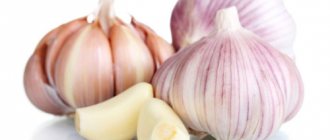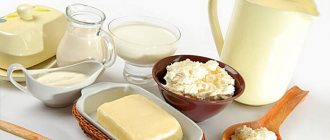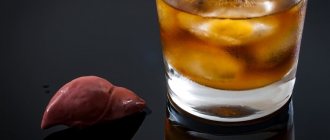Home>Articles>Alcohol and gastritis: is it possible and what kind to drink if you have a chronic disease?
quick menu (hide)
- Alcohol for gastritis in the acute stage
- Alcohol for gastritis of the stomach in remission
- How much and what kind of alcohol is possible for gastritis
- Alcoholic gastritis: what is it?
- Conclusions and recommendations for alcohol lovers
Gastritis is such a common disease that patients often stop paying attention to it. They are sure that they do not die from this disease, and it is almost impossible to get rid of it. They continue to live, abusing alcohol, forgetting about food restrictions. It would be better to find out whether you can drink alcohol with gastritis and what happens in the stomach when ethanol gets there.
Helicobacter pylori is the main causative agent of the disease, although there are other causes. The disease occurs in different forms. Acute gastritis is accompanied by digestive disorders and attacks of heartburn. The pathology, which has become chronic, practically does not manifest itself, and with prolonged remissions, general relief occurs. In order not to harm yourself, you need to know the effect of alcohol on gastritis and follow the recommendations of doctors.
Content:
- What Causes Inflammation
- Types of gastritis
- Treatment Options
- Diet
- Alcohol for gastritis of the stomach: can you drink it?
- What alcohol can you drink for gastritis with high and low acidity?
- What alcohol can you drink if you have gastritis caused by Helicobacter pylori
Gastritis is damage to the stomach lining that can cause a variety of symptoms, from abdominal pain to bleeding. At the same time, many people ask the question: “Is it possible to drink alcohol with gastritis?” While the answer may seem obvious, there are several nuances
Burning from wine
Drinking red, pleasant-tasting wine in small quantities (120-150 ml) is beneficial for the heart. Besides:
- the presence of flavonoids restores cholesterol levels and prevents the appearance of atherosclerotic plaques in capillaries;
- the second active substance is resveratrol, which prevents the formation of certain types of cancer and inhibits the destruction of nerve cells in the pathology of Parkinson's and Alzheimer's;
- The antioxidants contained in the dry drink stop the occurrence of diseases of the gums and teeth.
But in a sweet product the presence of antioxidants is much lower. For example, Lydia or Isabella completely lack flavonoids, as well as other beneficial substances.
Excessive consumption of various types of drinks, especially low-quality products, leads to the formation of gastritis with heartburn from wine. This is explained by the regular activation of hydrochloric acid, decreased immunity, and the appearance of reflux.
Consequently, heartburn from wine is only possible when using a low-quality wine-like product. If you drink natural alcohol and a little at a time, it will only have a positive effect on the body.
What Causes Inflammation
As part of the digestive system, the stomach secretes acid and powerful enzymes that help break down food and other substances. To protect the rest of the body from these potent compounds, there is a membrane that separates the contents of the stomach from other organs. Irritation of this membrane promotes inflammation.
The following are common irritants:
- stress,
- alcohol consumption,
- caffeine,
- smoking,
- high fat diets,
- reflux,
- aspirin,
- non-steroidal anti-inflammatory drugs (NSAIDs).
Composition of beer and its effect on the gastrointestinal tract
Beer is a fermented drink of natural origin.
It is based on the following products:
- water;
- malt;
- hop;
- Brewer's yeast.
Additionally, other ingredients may be present in the recipe.
Beer contains malt, hops, and yeast.
Chemical composition of the finished drink:
- water;
- carbohydrates;
- ethanol;
- polypeptides and amino acids;
- mineral compounds (calcium, potassium, sodium, magnesium, sulfur, phosphorus, etc.);
- vitamins;
- phenolic compounds;
- phytoestrogens;
- polyphenols;
- lupulins (natural preservatives);
- organic acids, etc.
When a low-alcohol carbonated drink enters the stomach, it irritates the glands in its walls. Because of this, the production of hydrochloric acid increases. If you regularly drink beer, and even in excess, the gastrointestinal tract will be overloaded.
Violation of its functionality increases the risk of developing pathological processes in the digestive organs.
To reduce the cost of goods, some manufacturers include chemical additives in the drink.
The resulting product is often not inferior in taste and appearance to the natural one. But beer obtained in this way negatively affects the functioning of not only the gastrointestinal tract, but also other human organs and systems. Read also:
Beer for weight loss: can you drink it, how does it affect weight, what to replace it with
409 — Rating: no ratings
The beer diet is an effective way to lose excess weight. True, most people still doubt the effectiveness of this technique. There is an opinion that the foamy drink...
Types of gastritis
Depending on the course of the pathological process, there are two main types - acute and chronic. The first occurs when digestive juices attack the previously weakened mucosa, causing severe pain and swelling. These symptoms usually appear quickly and without warning, can be severe, but usually disappear after treatment in less than 10-14 days.
Most often noted:
- mild stomach upset
- tissue ulceration,
- nausea and vomiting,
- bloating,
- increased gas formation,
- bleeding.
On the other hand, chronic gastritis is a slower and duller version. Symptoms appear gradually, and the pain in the upper abdomen is constant rather than intense. In this case it is observed:
- fatigue,
- anemia,
- loss of appetite,
- dyspeptic disorders.
The process can last for years and lead to the development of:
- bleeding,
- intestinal obstruction,
- ulcer,
- perforation of the wall,
- anemia,
- liver damage,
- stomach cancer,
- in rare cases - death.
Depending on the causes of the disease, there are:
- Stress gastritis is an acute type in which blood flow to the mucous membrane stops. This often occurs after a sudden injury, illness or infection.
- Alcoholic. It occurs because alcohol destroys the internal walls of the stomach over time. Similar changes occur with drug abuse, aspirin and ibuprofen.
- Atrophic - the result of prolonged inflammation from frequent exposure to Helicobacter pylori bacteria.
Causes of heartburn
Up to 50% of the world's population periodically experiences a burning sensation in the esophagus after spicy, fried and fatty foods. The condition occurs half an hour after eating, sometimes at night. Often, discomfort in the chest indicates the presence of serious health problems.
The most common causes of heartburn:
- gastroesophageal reflux disease (GERD);
- dysfunction of the lower esophageal sphincter;
- slow gastric emptying;
- hiatal hernia.
A number of doctors suggest that alcohol increases the risk of gastroesophageal sphincter disorders. In 2019, the results of a meta-analysis of 29 studies were published, which were conducted at Zhejiang University in Shanghai. In a report, Chinese scientists provided evidence of a link between regular alcohol consumption and an increased risk of developing GERD.
Treatment Options
The first step is eliminating the cause. In the alcoholic form, the cause is clear and easier to determine. However, achieving the goal is not always easy, because a person will first have to deal with addiction. However, there are effective treatments that will reduce symptoms and help you get rid of alcoholism. These include:
- Medicines. As a first line of defense, your doctor may prescribe several different medications: antibiotics (useful against Helicobacter pylori bacteria because they slow their growth and spread), antacids (which reduce acid production). The therapeutic regimen may include vitamin B-12 injections, medications for anemia and iron deficiency.
- Inpatient and outpatient alcoholism treatment programs. If the patient continues to abuse after finishing antibiotics or other medications, chronic gastritis will persist and may damage the stomach wall. To avoid this scenario, doctors may prescribe a patient an inpatient or outpatient program aimed at eliminating drinking in everyday life. The first 5-7 days are devoted to detoxification, and the subsequent time is devoted to changes in lifestyle.
Chest burning from beer
Beer is often used in folk recipes. Is the intoxicating drink as harmless as many people believe?
Beer is a low-alcohol product. It contains vitamins B, PP, and is also enriched with other useful minerals. However, in addition to such positive qualities, it also has negative aspects.
The basis of beer is hops. And this is a strong stimulant that increases the secretion of gastric juice, which subsequently causes heartburn if you drink beer.
And since beer is a foamy product, its bubbles significantly worsen the functioning of the lower sphincter. Often, when drinking beer, heartburn is also accompanied by belching, then stomach contents enter the esophagus tube. If you drink an intoxicating drink constantly, an ulcer can form.
Diet
In the alcoholic form, the mucous membrane not only swells, but also weakens. To speed up its healing, you should avoid:
- sour, peppery, salty foods,
- fried,
- too sweet
- dairy products,
- tomato,
- fruit juice,
- soda,
- caffeinated drinks,
- drugs, cigarettes or NSAIDs
On the other hand, natural products can be used as protection. Reduce the strength and ability to reproduce Helicobacter pylori:
- broccoli,
- cabbage,
- apples,
- berries,
- honey,
- olive oil,
- tea,
- garlic,
- celery,
- beans.
High fiber foods help the stomach heal wounds, improve intestinal function and help the body avoid digestive problems. These include:
- carrot,
- greenery,
- spinach
- oatmeal,
- nuts and seeds,
- radish,
- beet,
- green bean.
Fatty meats such as ground beef or pork can worsen symptoms. To avoid additional stomach irritation, it is better to choose chicken or turkey.
Since anemia and vitamin B-12 deficiency are common during illness, try to include in your diet:
- fatty fish,
- yogurt,
- eggs,
- breakfast cereals.
How to relieve burning discomfort?
If you experience discomfort in the chest, esophagus, or a strange taste in the mouth, we recommend taking the following measures:
- Any product such as anticides will help reduce high acidity caused by drinking acidic juices or alcohol; you can purchase it at any pharmacy kiosk without a prescription;
- Of the available and quick remedies, you can use regular baking soda; to prepare a solution, mix 1 teaspoon of powder with a glass of water, drink the contents. It is strictly forbidden to use soda in its pure form, because... the powder can cause gag reflexes, severe headaches or weakness. Dry powder can cause an overdose in the body;
- Traditional mineral water is considered an effective remedy, helping to reduce acidity and restore normal functioning of the digestive system;
- Regular chalk or calcium gluconate can also solve the problem of heartburn. Chalk is also sometimes mixed with spices and ginger;
- The sorbent in the form of activated carbon also copes well with the problem of the esophagus; in addition to the burning sensation, coal can also remove hangover syndrome;
- Infusions of plantain, St. John's wort, nettle and marshmallow can also relieve discomfort;
Despite the large number of effective remedies for heartburn, experts advise monitoring the quantity and quality of alcoholic beverages consumed. Therefore, it is important to exclude not only the occurrence of unpleasant sensations, but also their causes. From the video you can learn in detail about the causes and prevention of heartburn.
Alcohol for gastritis of the stomach: can you drink it?
Chronic alcoholics may ask the question: “Is strict abstinence necessary, or are there alcohols that can be consumed?” One study found that stomach inflammation, although present to some degree in 72% of adult control subjects, was present in 100% of participants with chronic alcoholism. At the same time, atrophic gastritis was detected in people who abused it for more than 10 years, and its signs were not noticed in those who led a healthy lifestyle. Of course, alcohol in large doses harms the stomach, but this does not mean that it is completely contraindicated for people. The main problem is not that you drink, but that drinking becomes a daily activity. And for recovery it is better to completely abandon it.
Why does heartburn occur from alcohol?
Ethanol irritates the walls of the stomach and promotes the release of hydrochloric acid, the main component of gastric juice. Even small portions of alcohol reduce the amount of enzymes that the pancreas produces. As a result, food is digested slowly and stagnates in the stomach. The process is aggravated by the fact that alcohol is usually consumed along with fatty and spicy snacks.
How does alcohol affect the gastrointestinal tract:
- relaxes the lower esophageal sphincter and the muscles surrounding the stomach;
- irritates the mucous membranes of the gastrointestinal tract;
- makes it difficult to remove acid from the esophagus.
Often alcohol is mixed with carbonated sweet drinks, which themselves can cause heartburn. Excessive smoking during a feast increases the risk. The combination of these factors leads to the fact that the contents of the stomach, through a weakened sphincter, enter the already irritated walls of the esophagus and cause pain.
As a rule, people drink alcohol in the afternoon or evening, and then go to bed. During sleep, digestion processes slow down, and acid is thrown into the esophagus at night, which leads to pain and insomnia. Lying down also contributes to the occurrence of reflux. Heartburn after drinking alcohol the next day for a long time may indicate the initial stage of GERD. In this case, you need to undergo examination by a gastroenterologist.
What alcohol can you drink for gastritis with high and low acidity?
According to a study of the interaction of ethanol and gastric juice secretion in humans by S. Chari, S. Theissen and M. V. Singer, the results of which were published in 1993, the secretory reaction of hydrochloric acid can be different. Dilute alcohol (<5% vol) is a mild stimulant of secretion, while higher dosages either have no effect on production or have a moderate inhibitory effect. Pure ethanol, as well as whiskey, gin, and cognac do not accelerate the release of gastrin. Alcoholic drinks with low ethanol content are strong stimulants of gastric acid secretion and gastrin release, with maximum production observed when drinking beer.
Accordingly, beer and wine are contraindicated in the development of gastritis with high acidity; with this form of the disease, only small doses of strong drinks can be consumed occasionally. At the same time, it is beer and wine (mostly white) that will increase secretion in a reduced form.
How to reduce the risk of heartburn
All alcohol irritates the stomach, but there are certain drinks that you should avoid if you experience frequent heartburn, including:
- beer - contains hops, which stimulates gastric secretion;
- champagne is saturated with carbon dioxide;
- liqueurs and cocktails based on it - sugar increases acidity;
- strong drinks mixed with tomato and orange juice.
Premium white and red wines, good vodka, and aged cognac are relatively safe. If you have lower esophageal sphincter dysfunction, you should limit your alcohol intake and avoid fatty, spicy, and fried snacks. Fractional meals in small portions are recommended.
What alcohol can you drink if you have gastritis caused by Helicobacter pylori
Liam J. Murray, MD, Queen's University Belfast, UK, and colleagues tested 10,537 people for H. pylori infection in 2003. They also asked them how much alcohol and coffee they drank and how much they smoked. Study results published in the American Journal of Gastroenterology suggest that consuming moderate amounts of wine, beer or cider may protect against H. pylori infection." Murray's team found that a minimum of three glasses of wine per week was required to protect against H. pylori. Those who drank three to six glasses of wine had 11% fewer H. pylori infections. Drinking more than six glasses reduced bacteria counts by another 6%. This effect was not observed in those who preferred vodka. Researchers note that wine and beer are rich in compounds with antibacterial activity. So their protection against H. Pylori may have nothing to do with their alcohol content.
How to drink alcohol to avoid negative consequences
To prevent the foamy drink from causing severe heartburn or other health problems, it is not recommended to drink it on an empty stomach.
The product must be unfiltered and natural, i.e. do not contain chemical additives. After drinking beer, you should not bend over, lift heavy objects, or lie down. Walking and taking a leisurely walk in the fresh air will help ease the work of the digestive tract. For men, a dosage that does not exceed 600 ml per week is considered safe. For women – 400 ml. But these numbers are average. When calculating, body weight and individual characteristics of the body should be taken into account.
Literature:
- Diseases of the esophagus, stomach and duodenum. Clinic, diagnosis and treatment: textbook: for the system of postgraduate and additional education of doctors / [Trukhan D.I., Tarasova L.V., Filimonov S.N., Viktorova I.A.]. - St. Petersburg: SpetsLit, 2014. - 157 p.
- Gut Magazine. 1993 Jun; 34(6):843–847.
- Gastroenterology: reference book / Baranovsky A.Yu. and etc. ; edited by A. Yu. Baranovsky. - Moscow: St. Petersburg, 2011. - 506 p.
The text was checked by medical experts: Head of the socio-psychological service of the Alkoklinik MC, psychiatrist-narcologist L.A. Serova.
CAN'T FIND THE ANSWER?
Consult a specialist
Or call: +7 (495) 798-30-80
Call! We work around the clock!









